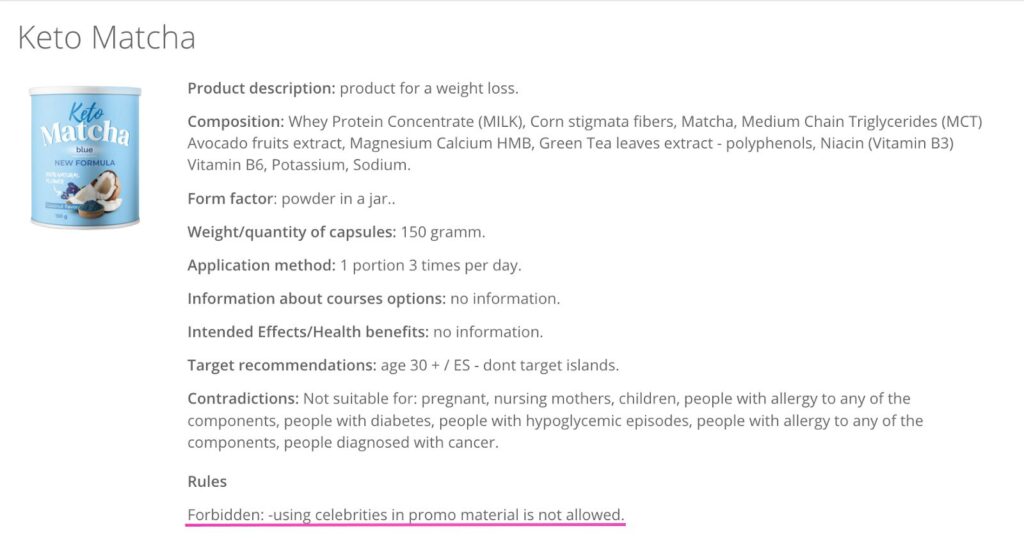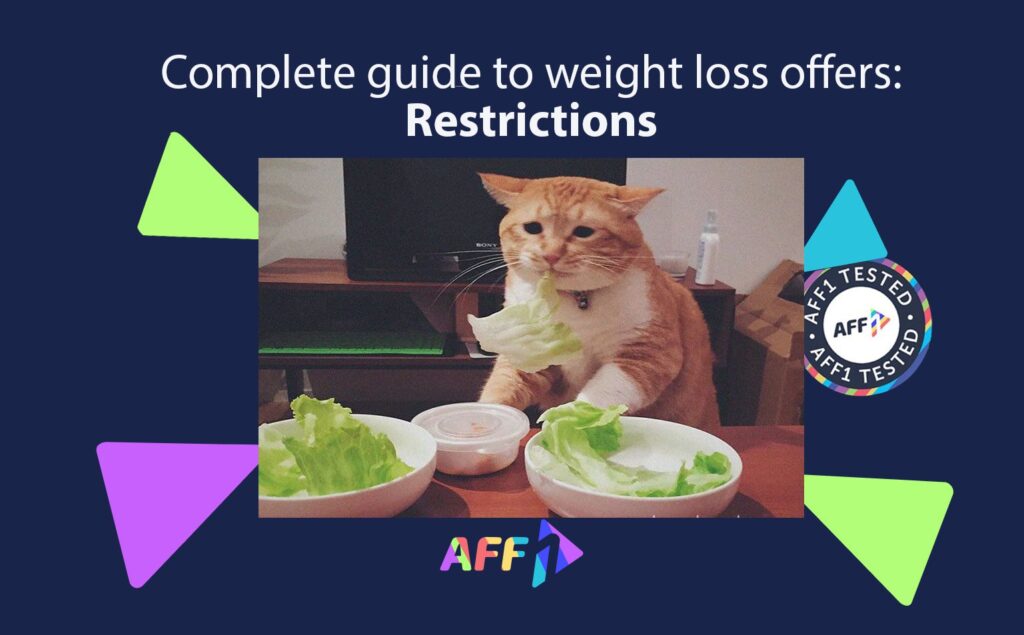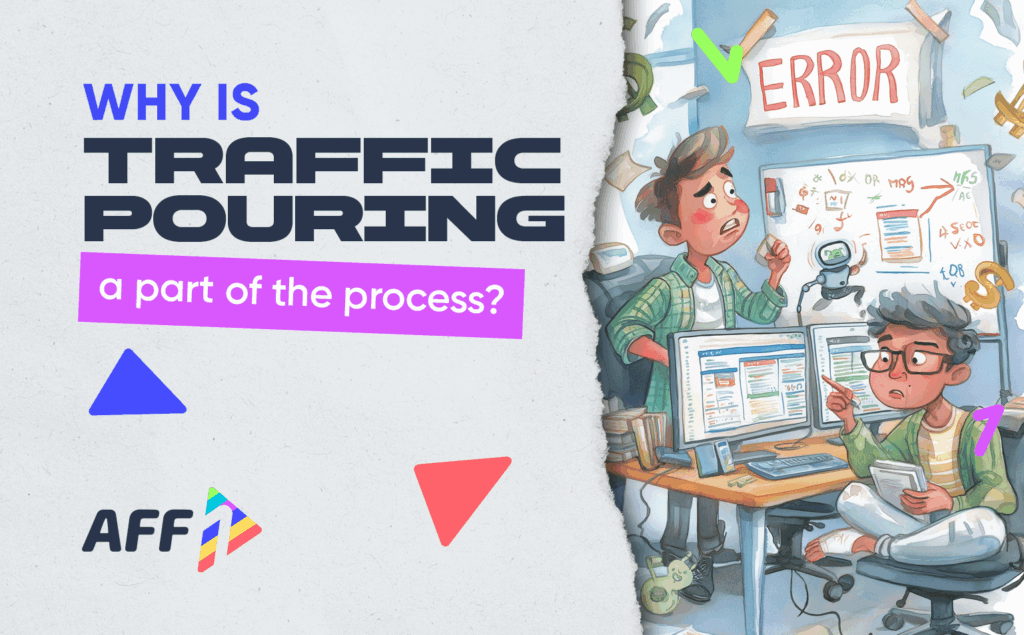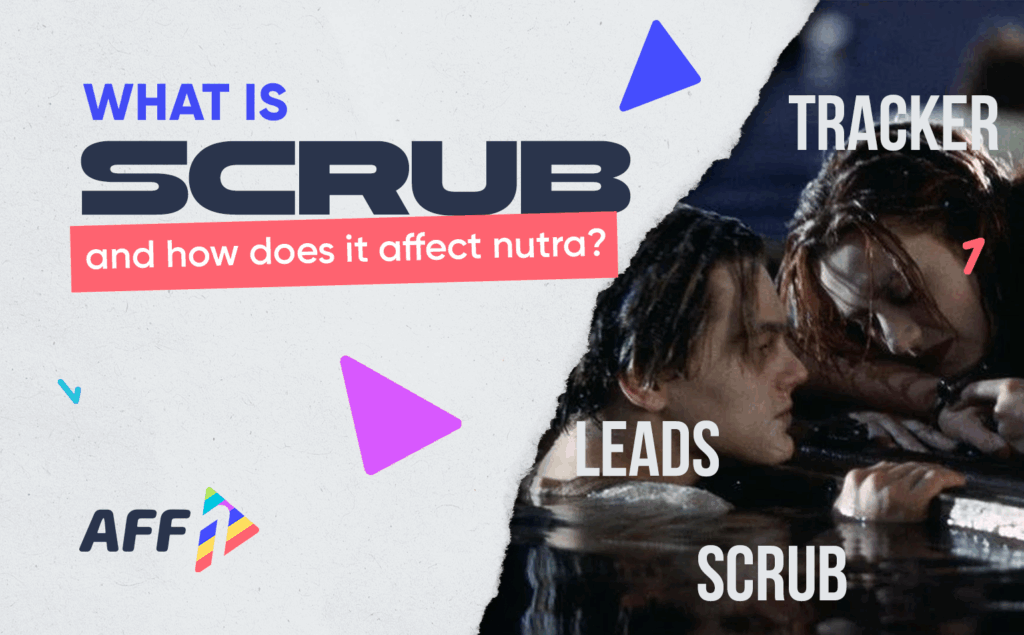Dietary supplements for weight loss remain a cornerstone of the Nutra niche, with consistent demand. However, conversions are heavily influenced by various nuances, particularly advertising restrictions. The Aff1.com team offers an extensive, detailed exploration of these considerations—part three of our series dedicated to maximizing profits from weight loss offers.
Previous articles reviewing weight loss offers:
What are restrictions for weight loss offers?
Advertising restrictions for weight loss offers can vary depending on the country or region, as each jurisdiction has its own set of laws and regulations governing advertising practices. However, there are some common principles and restrictions that tend to apply in many places:
Truthfulness and Accuracy
Advertisements must avoid false or misleading information and should base all claims on substantiated evidence.
Decency and Ethics
Advertisements must adhere to standards of decency and ethical conduct. They should not contain offensive or inappropriate content.
Target Audience
Restrictions may limit the target audience for certain products and services. For instance, advertisers must not target minors with advertisements for alcohol or gambling.
Health Claims
When it comes to health-related products, including weight loss supplements, there are often strict regulations regarding the types of claims that can be made. Many jurisdictions mandate that advertisers provide scientific evidence to back any health-related claims.
Endorsements and Testimonials
If endorsements or testimonials are used in advertisements, they must be genuine and represent the honest opinions of the endorsers. Additionally, any material connections between the endorser and the advertiser must be disclosed.
Comparative Advertising
Specific regulations may apply to comparative advertising to ensure that one product’s comparison to another remains fair and accurate.
Children’s Advertising
There are often special regulations governing advertising aimed at children, including restrictions on certain types of content and limitations on the use of persuasive techniques.
Environmental Claims
Advertisements making claims about environmental benefits or sustainability must be truthful and substantiated.
Regulatory Bodies
Many countries have regulatory bodies tasked with overseeing advertising practices and ensuring compliance with relevant laws and regulations. These bodies may have the authority to investigate complaints, impose fines, or require corrective actions for non-compliant advertisements.
And don’t forget about the ban on using real people. Of course, it’s very tempting to make an ad featuring Sharon Stone promoting miracle supplements. But such advertising will be doomed. Moreover: you risk getting sued.
Here are some interesting stories with such examples in our article How to fail an advertising campaign? Take a photo of a star without permission!
How to find out restrictions for your weight loss offers?
Offers may have common and specific restrictions. We talked about common ones above; it is advisable to always adhere to them. Specific restrictions need to be studied for each offer separately.
If you work with the Aff1.com affiliate program, then each offer is accompanied by a description of restrictions and rules. We advise you not to ignore these parameters. Particularly when dealing with weight loss offers, advertising restrictions are often particularly stringent due to the potential health risks associated with these products and the prevalence of misleading or exaggerated promises.
This is what the warning in the offer description looks like:

In addition, there may be restrictions on the use of certain ingredients or on unsubstantiated claims about the speed or ease of weight loss.
Consequences of Ignoring Weight Loss Offers Restrictions
You know that Facebook will not allow dubious advertising campaigns and will block them. But even if pre-landing pages and other tricks help you, consider these risks:
- Legal Action: If you use images of celebrities without their permission, you could be subject to legal action for unauthorized use of their likeness or image rights. Celebrities have the right to control the commercial use of their image, and using it without permission can result in lawsuits for damages.
- Copyright Infringement: If you use copyrighted material, such as images or music, without permission, you could be liable for copyright infringement. This can result in legal action, including demands for damages and injunctions to stop the unauthorized use.
- Consumer Complaints: Misleading advertising can lead to complaints from consumers who feel deceived or misled by the advertisement.
- Regulatory Sanctions can result in fines, injunctions, or other sanctions.
- Legal Costs and Penalties: Defending against legal actions resulting from misleading advertising can be costly in terms of legal fees, settlements, and potential damages awarded by courts.
Here is another interesting article about Deepfakes of stars in advertising and related scandals
So, ignoring advertising restrictions can have serious consequences for you and advertisers. Following the rules, or at least taking their existence into account, is much more effective.
If you have any doubts or questions, please feel free to contact Aff1.com managers for exclusive offers, advice and tips in your work.
And don’t miss new articles on the Aff1.com blog, we write about news, life hacks and useful tools!





Добавить комментарий